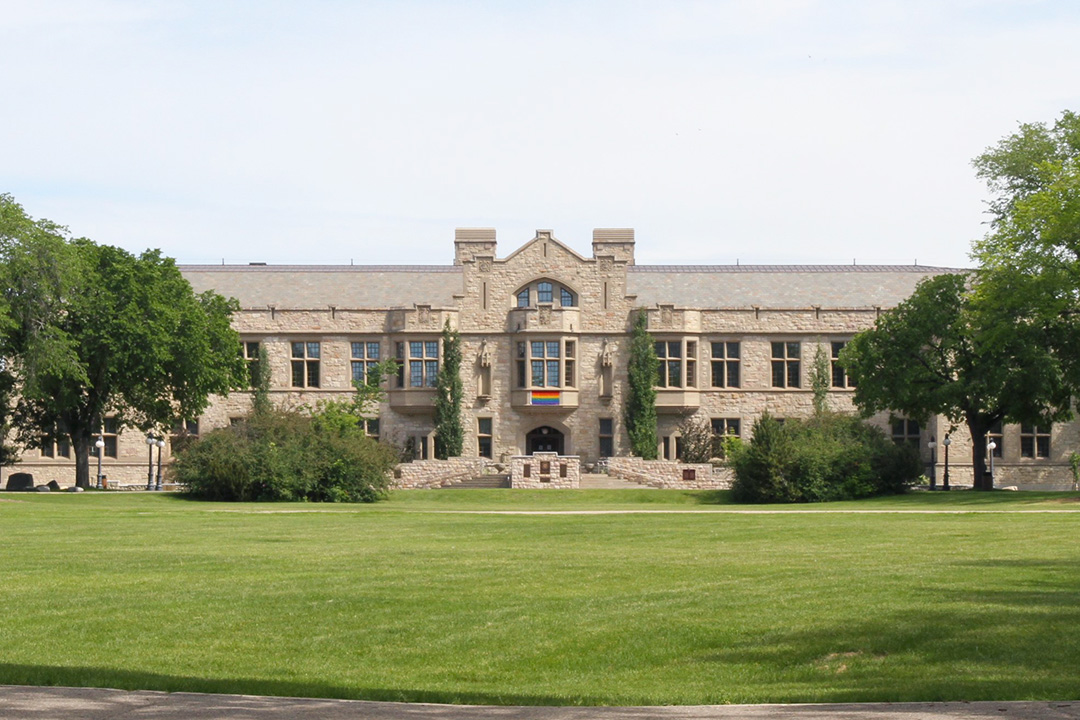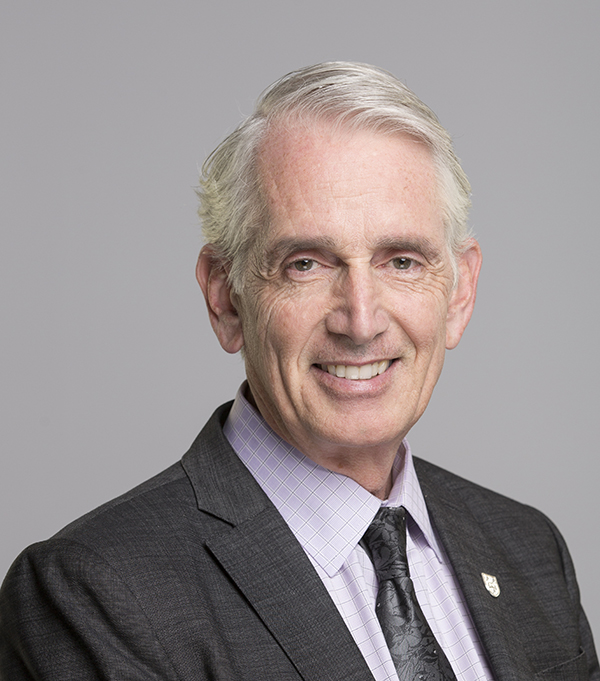
USask president delivers state of the university address
For the second year in a row, University of Saskatchewan (USask) President Peter Stoicheff delivered his annual state of the university address to the General Academic Assembly (GAA) Thursday via video, rather than in-person, due to the ongoing pandemic.
By James Shewaga
However, a year into the global health crisis—a year like no other in the history of the university—the president pointed to signs of hope on the horizon for the campus community, country and the world.
Click here for the full text of the State of the University Address.
“COVID-19 is not over, but I am thankful that we are now beginning to see beyond the difficulties and challenges of this past year, and that a better time awaits us on the horizon,” said Stoicheff, who delivered his sixth GAA address, The Post-Pandemic University the World Needs, virtually in the university’s historic Convocation Hall. “And I thank all members of the USask community for upholding the vision, mission, and values of this great university over this past intensely challenging year.”
It was a little over a year ago that the World Health Organization declared the COVID-19 health crisis a pandemic, with the university closing campus facilities and moving all classes to remote learning just days later. In his GAA address, Stoicheff lauded the efforts of faculty, staff and students, with special praise for the Pandemic Response and Recovery Team, for making a swift and successful switch to remote learning under the most trying of circumstances.
“The pandemic has taught the world much—about empathy and understanding, and about the importance of science-based decision-making,” Stoicheff stated. “It has exposed many inequities in our world, and the vulnerability of marginalized peoples. It has highlighted the need for governments, public health experts, and citizens to work together. And it has demonstrated the importance of a university such as ours in the fight against one of the most pressing challenges of our lifetimes.
“We could not have been successful in this role if it were not for the perseverance, vision and collegiality of our students, staff and faculty. No other year in our university’s history has asked so much of us, individually and collectively.”
While the challenges have been enormous, Stoicheff noted that there have also been several significant achievements over the past 12 months, from helping lead COVID-19 vaccine research to members across campus coming together to make a difference in the community in an unprecedented time of need.
“Despite the extreme pressures placed upon all of us this past year, it has proved to be a productive one at our university, full of what would be considered exceptional accomplishments in any year, let alone this one,” said Stoicheff. “We have moved the needle on many aspects of our ambitious University Plan to be The University the World Needs.”
Stoicheff noted that USask ranked first among the country’s medical universities for growth in total research income in Canada’s Top 50 Research Universities 2020 rankings, and also ranked first in Canada and 20th in the world for water resources research, by the 2020 Academic Ranking of World Universities. Remarkably, USask’s three national research facilities—the Canadian Light Source, SuperDARN, and VIDO—were awarded one third of the entire Canada Foundation for Innovation Major Science Initiatives federal funding in 2020, the most for any university in the country.
From opening the Prince Albert Campus as a key part of the university’s commitment to Indigenous and northern education, to implementing a new Equity, Diversity and Inclusion Policy, and to adopting the university’s first Sustainability Strategy, significant progress has been made during the pandemic. With the university now teaching more students than ever before, Stoicheff said USask is positioning itself to be The University a Post-pandemic World Needs.
While the pandemic has created financial challenges for the university—and for all universities across the country—Stoicheff is encouraged by the support of the Government of Saskatchewan in the budget announced this week, reinforcing the value of USask’s contributions to the province, the country and the world.
“A year into the COVID-19 crisis, while we are closer to the end of this pandemic, we haven’t finished with it—or it with us—quite yet,” said Stoicheff. “Flexibility and caution will continue to be required of all of us, as COVID-19 has proven to be unpredictable and to be a planning challenge. Let us all work together to do everything we can to accelerate the end of the pandemic, including continuing to follow all provincial COVID-19 guidelines and getting vaccinated when able to do so. This will ensure we are collectively headed in the direction of being back together again before too long.”
Click here to watch the GAA address.

